
If you cannot imagine spending time outdoors in the thick of winter, imagine being indoors and still having issues with comfort. This is usually the case if the indoor air quality inside your home is worse than what is outdoors. Keep in mind that in some homes, indoor air quality (IAQ) is worse than the air found outside. Let’s take a look at how winter indoor air quality affects our health and the ways we can ensure a healthy indoor environment.
How to Improve Your Indoor Air Quality in Winter
Indoor air can be hazardous to health and this has been proven time and again. Fortunately, there are tried-and-tested solutions that we can turn to for the improvement of indoor air. There are ways to prevent pollution indoors and protect the health of those who are living and working indoors.
Why the Quality of Indoor Air Worsens in Winter
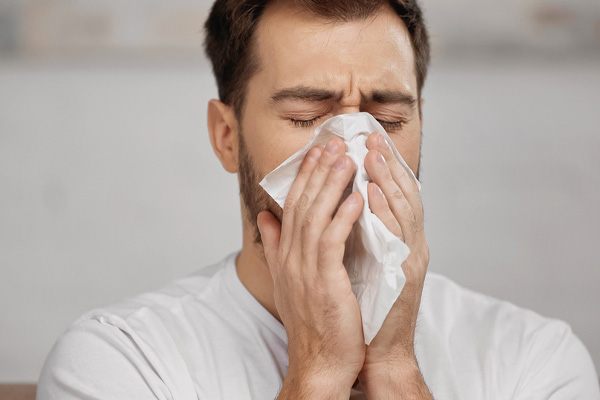
Your indoor air quality relies on a good, reliable HVAC system. HVAC systems, as we all know, can be costly to run. They use up a good amount of energy to ensure that the indoor environment is warm and comfortable. For the HVAC system to work well, the home or building must be somewhat sealed to prevent warm air from seeping through gaps and cracks. While this is helpful for keeping the air indoors at a comfortable level, it will also encourage the buildup of particulates that usually include dust, pollen, dander, mold spores, VOCs (volatile organic compounds), chemical fumes, and other types of pollutants. Because the HVAC system recirculates air, these contaminants are carried throughout the home or building. Meanwhile, the occupants get to inhale these pollutants or become exposed through direct contact and ingestion. This explains why the indoor environment tends to be uncomfortable during winter.
Can Poor Indoor Air Quality Affect Health?
Indoor air quality exposes occupants to a number of pollutants. How these pollutants affect a person’s health will depend on how severe the pollution is and how long the person has been exposed. If you are a visitor spending a few minutes or hours inside a building with poor indoor air, it is not likely you will have a problem later on. However, if you spend many hours on most days inside a room or building with compromised air, you can be sure that your exposure will result in issues with your health.
According to the U.S. EPA (Environmental Protection Agency), polluted indoor air can affect health in different ways. Here are some issues to watch out for:
1. Mild Irritation

A mild form of irritation may be experienced by some people after exposure to air pollutants. This could involve the eyes, nose, and throat. People who have a high sensitivity to certain types of pollutants and those who have allergies will usually have worse symptoms. However, the discomfort usually lasts for as long as you are exposed to the pollutants. The symptoms usually go away when you leave the building.
2. Chronic Fatigue
If you live in a home that has poor air quality, your immune system suffers. You likely will begin experiencing dizziness and headaches, and complain of chronic fatigue. Chronic fatigue does not only affect your performance but it will also affect your well-being.
3. Respiratory Disease
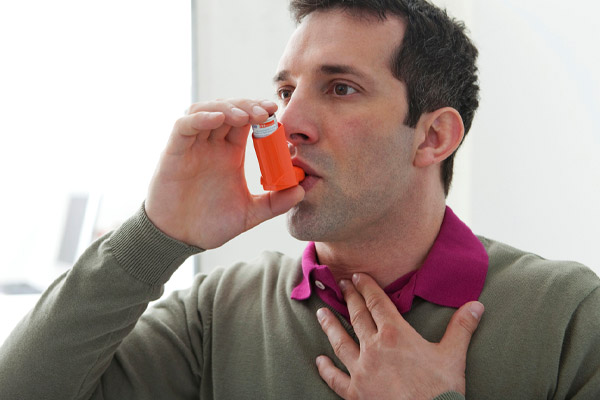
If you already have some form of respiratory disease, you might experience worsening episodes. For those who don’t, you will likely develop it. If you have asthma, for example, pollutants in your indoor environment will only make it worse.
4. Cancer
Unfortunately, some particles found in the air are carcinogenic. Radon, for example, is a culprit in the development of lung cancer. There are also other compounds that form indoors that might lead to serious health conditions.
5. Death
Some types of gases, such as carbon monoxide, are toxic. At high levels, this gas could be fatal even with short-term exposure. Carbon monoxide forms after combustion and is difficult to detect just by using the senses.
Tips for Improving Indoor Air Quality During Winter
Clean Up
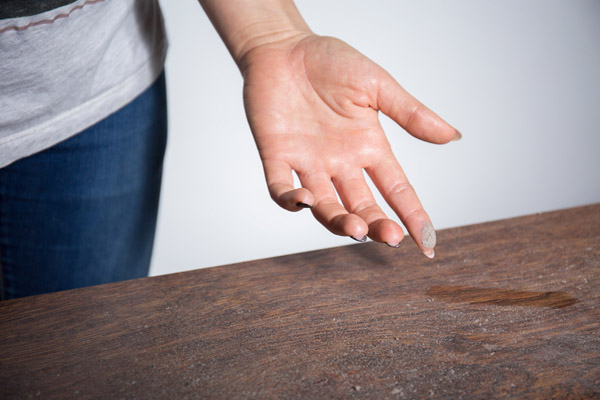
Dust will settle on exposed surfaces. If disturbed, dust can float in the air where it can be inhaled or swallowed. This can be minimized by regular dusting and vacuuming. If you are going to clean up, make sure to wear protective gear such as masks and goggles if necessary. You could also use natural or non-toxic cleaning products for a more thorough cleanup.
Get a Professional Ductwork Inspection
Ducted systems use ducts to distribute air throughout the home. Dust, dirt, and other pollutants can build up within the ductwork and affect indoor air quality. Have a contractor inspect the air ducts and clean it. In many cases, the technician can even identify any issues early and repair damaged sections or patch up leaks.
Replace Air Filters Regularly
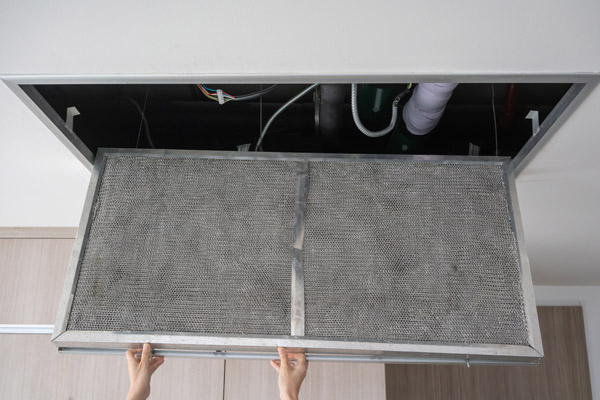
Air filters trap particulates in the indoor environment. However, air filters do become overwhelmed by pollutants and they become clogged. This affects their efficacy and efficiency. To ensure that your air filter will always work, make sure that they are replaced or cleaned periodically. Check the manufacturer’s recommendation regarding your air filters or inspect their condition yourself once every month or three months. Keep in mind that each air filter is different and how often the filter is replaced will depend on factors such as the number of occupants in the home, presence of pets, cleaning schedule, etc.
Consider a Filter Upgrade

If you have a basic filter, it will likely only be capable of trapping large particulates. As a result, smaller pollutants can slip through and still cause problems. Consider using high-efficiency filters for a more efficient performance. Note that these types of filters might require changes in the system. If you are unsure, get in touch with a licensed HVAC contractor.
Stop the Source of Pollutants
Know what types of pollutants you have to deal with and deal with their sources directly. Old heating equipment, hazardous building materials, and toxic cleaning solutions are common sources of pollution. If you suspect you have a more serious problem, consider calling your local technician to inspect your home and offer their solutions.
Improve Your Ventilation
Poor ventilation can worsen issues with indoor pollution. Check if you have mold, notice wall condensation, and smell strange odors. Some of these issues are more obvious in certain places, so take note of that as well. In general, areas that require better ventilation include bathrooms and kitchens. If you are performing any home improvement projects such as sanding and painting, make sure to keep windows and doors open and that there is adequate ventilation. This will ensure a good exchange of fresh air inside the home.
Use an Air Purifier
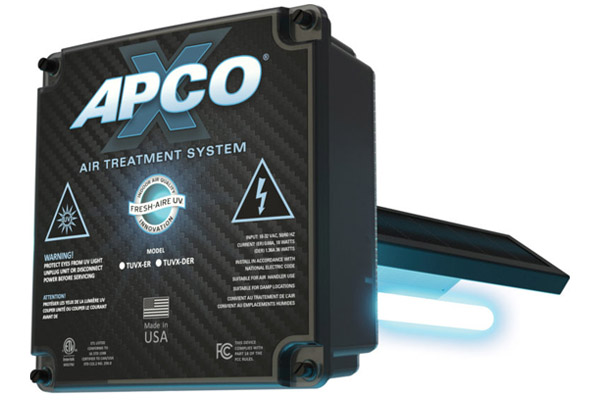
Although your HVAC system has a built-in air filter, it may not be adequate in handling indoor air pollution. You can fix this by adding an air purifier. Air purifiers capture additional particulates from the air. There are even models that use activated carbon filters to kill pathogens and eliminate odors. If you want to add an air purifier to your home, talk to your HVAC contractor about compatible solutions to your system.
Increasing Humidity
The winter months tend to promote dry air. When there is little moisture in the air, the nose and throat become dry as a result, leading to respiratory issues. To prevent this, consider using an indoor humidifier to maintain a good balance of air moisture. You could even talk to your HVAC technician about using whole-house humidifiers.
Use Air-Heat Exchangers
Air-heat exchangers help eliminate pollutants from indoor air, replacing them with fresh air pulled in from outdoors. Exchangers are an affordable solution because they do not need to use energy to keep the air warm.
Conclusion
There is no need to suffer during the winter months. Simply by improving your indoor air quality, you can increase comfort and enjoy the season. If you need professional help, get in touch with your trusted HVAC contractor to discuss the key solutions to your concerns.
Call Point Bay Fuel For Superior Heating & Cooling Solutions

Point Bay Fuel is a leading heating and cooling service provider for our clients in Ocean and Monmouth County, New Jersey. All services we offer are performed only by certified HVAC technicians who are trained and skilled in performing top-notch tune-ups, installations, replacements, repairs, and more.
We guarantee that our HVAC service costs are the most competitive in the area. We know how much you value your comfort and we make sure we offer only the services that prioritize your comfort, health, security, and safety throughout the year. Talk to Point Bay Fuel today for the best solutions to your needs. Call now to schedule a consultation.
Contact us now by calling (732) 349-5059 to speak to one of our home comfort specialists!
The post 9 Ways You Can Improve Indoor Air Quality During Winter appeared first on Point Bay Fuel.
No comments:
Post a Comment